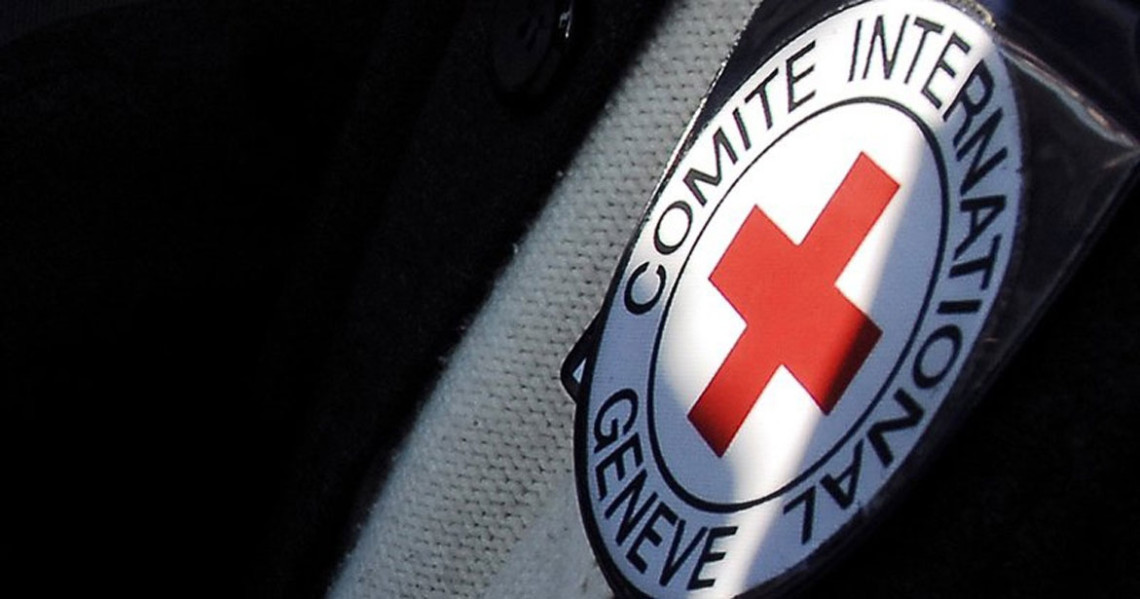
The importance of preserving a neutral humanitarian space for conflict affected populations

Neutrality is essential, not optional
Over the last 160 years, the ICRC has spared no efforts to protect and assist people who are suffering the consequences of armed conflicts around the world. We always stayed true to our main principles that guide our work: neutrality, which means we do not get entangled into politics or favor one side over the other, as well as impartiality, which means helping affected people no matter where they live, where they come from or what they believe in.
These principles of neutrality and impartiality are not always well understood but remain essential to our humanitarian action.
And it is important to remind what would happen if we compromise our neutrality and principles?
Simply we will lose the trust of the sides. We will not be able to continue carrying-out lifesaving operations and responding to the needs of the affected communities, prisoners, families of missing persons and the sick.
The nature and scope of our activities are decided upon after assessments of the needs of communities. A no matter which area we access, or which activity we carry-out, we only proceed with that after receiving the necessary security guarantees and approval from concerned decision-makers.
Support to affected population in the 90s
We have been present in Azerbaijan and the Region since 1992. During the nineties alone and in accordance with our role, we helped in repatriating over 360 detainees across the lines of contact, to Azerbaijan and from Azerbaijan, bringing them back to their families. We helped detainees and civilians in the region who were separated from their families to exchange news with their loved ones, by delivering around 30,000 Red Cross Messages. We reached more than 260,000 displaced and vulnerable people during that time, in places like Fuzuli, Aghdam, Terter, Kelbejer, Barda and Nakhchivan among others, and distributed food, blankets, clothing, and daily essentials together with other partners from the Red Cross and Red Crescent Movement. Since the nineties, and upon the wishes of thousands of families, we started to document and preserve information on people who are unaccounted for. Such data were shared in due time with Azerbaijani authorities, who are ultimately the one responsible to clarify the fate of missing people, not the ICRC. What can be done at our level is to support such efforts through technical expertise, capacity building and help families to cope with the uncertainty and the loss of loved ones. This is what we have been doing in the past, and continue to do till today, to help authorities in their search for missing people in Azerbaijan.
ICRC operations along Lachin Road
Since last December, we carried-out humanitarian operations along the Lachin Road in our role as neutral humanitarian intermediary. During that period, we managed to transfer 99 patients in urgent need of medical care, reuniting 259 persons with their families and delivering medicines, food and baby formula to hospitals. These operations are coordinated each and every time with all concerned. We discuss and inform them of all the logistic aspects, what we are transporting and whom we are transporting in our cars and obtain their agreement and consent to go ahead. Such operations would have never been possible without this neutral stand that the ICRC abide with and stick to. This open and transparent dialogue we maintain with the sides is what allows us to reach people in need.
What we can and cannot do towards Prisoners of War and detainees
The ICRC has a very specific role and working standards conferred to it by all the States who are signatory of the Geneva Conventions. This role allows us to monitor, promote and advise States and authorities on issues related to the International Humanitarian Law (IHL). But it is important to remind that it is their responsibility to comply and respect the provisions of this Law, including in relation to prisoners of war and detainees.
For the latter, the ICRC has the right to visit them, register them, discuss with them in private the conditions of their internment and the treatment they receive, exchange news between them and their family members as well as convey its concerns to authorities. But it is the detaining authority which is responsible to ensure the preservation of the life, dignity and well-being of detainees and decide on their release.
IHL violations
Sometimes we are questioned why we do not publicly share our observations and do not punish the wrong doers? Not communicating publicly doesn't mean we are indifferent, on the contrary. Whenever we observe a breach of any of the IHL rules, we raise them bilaterally and confidentially with the concerned side in a direct and persistent way. Confidentiality can give us better chances to change certain behaviors and violations to IHL. Our efforts might not always be visible to the public, and progress can take time. Sometimes such work doesn't lead to successful results. However, the ICRC, as a humanitarian organization, has no way to force States to comply with their legal obligations. We are humanitarians, not politicians. The responsibility to prevent and punish IHL violations belongs primarily to States. The ICRC cannot participate in judicial proceedings or disclose any kind of information on what we see or discover in our work.
Lastly, amidst the circulation of false allegations, misinformation, disinformation and the rise of political debates, we would like to reiterate the need to not politicize humanitarian aid. We also call all sides to do all they can to continue to preserve this neutral humanitarian space for the sake of the affected populations in Azerbaijan and elsewhere.
